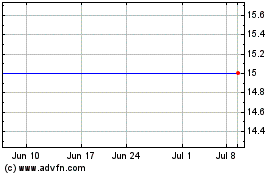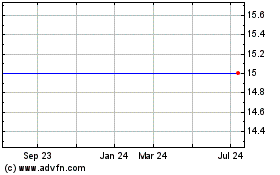- NDA Filing Planned for 1Q20 for
Relapsed/Refractory RCC –
- Company Plans Final OS Analysis in 2Q20 -
AVEO Oncology (NASDAQ: AVEO) today provided a regulatory update
following a meeting with the U.S. Food and Drug Administration
(FDA) to discuss results from the August 2019 overall survival (OS)
analysis of the TIVO-3 trial and the Company’s proposal to proceed
with a New Drug Application (NDA) for tivozanib.
TIVO-3 is the Company’s Phase 3 randomized, controlled,
multi-center, open-label study to compare tivozanib, the Company’s
vascular endothelial growth factor receptor tyrosine kinase
inhibitor (VEGFR-TKI), to sorafenib in 350 subjects with highly
refractory metastatic renal cell carcinoma (RCC). The TIVO-3 trial
was designed to address the FDA’s concerns regarding the OS trend
in the TIVO-1 trial. In the TIVO-1 trial, the Company’s initial RCC
pivotal trial, the FDA found that the inconsistent progression free
survival (PFS) and OS results and imbalance in post study
treatments made the trial results uninterpretable and inconclusive
when making a risk-benefit assessment necessary for drug
approval.
The Company previously announced that the TIVO-3 trial met its
primary endpoint of demonstrating a significant improvement in PFS.
The study also demonstrated a significant improvement in the
secondary endpoint of overall response rate. The August 2019
analysis of the secondary endpoint of OS was the second
prespecified interim OS analysis of the TIVO-3 trial, and showed an
updated OS hazard ratio (HR) of 0.99 at two years from the last
patient enrolled in the study.
In the FDA’s preliminary feedback, based on its assessment of
the totality of evidence presented to date, the FDA recommended
that the Company not submit an NDA at this time. The FDA stated
that it remained concerned about the results of TIVO-3 in the
context of the overall development of tivozanib. The FDA noted that
the Company’s current interim OS results do not abrogate the FDA’s
concerns over detriment and that those results may worsen with
final analysis at 263 events, and that the median OS for tivozanib
is worse than that of sorafenib.
In view of the changing first-line treatment landscape as well
as the FDA’s continued concerns, the Company informed the FDA that
it intends to narrow its proposed indication to relapsed/refractory
RCC. At the meeting, the FDA acknowledged AVEO’s responses and
reiterated its concerns about the survival information and the
totality of data. The FDA noted that the choice to submit the data
is the Company’s, and that a discussion with the Oncologic Drug
Advisory Committee will likely be required. The FDA said that if
AVEO wishes to proceed with a revised OS analysis in June 2020,
AVEO should submit an updated statistical analysis plan (SAP) with
a planned OS update based on the projected number of events at that
time.
AVEO intends to submit to the FDA an update to the SAP for the
final OS analysis consistent with these discussions, followed by an
NDA submission in the first quarter of 2020. AVEO expects to report
the final OS analysis in June 2020 based on a May 1, 2020 cutoff,
at which point the Company estimates that the study will have
reached approximately 263 OS events, as discussed with the FDA. The
FDA and the Company agreed that if the final analysis yields an OS
HR above 1.00, the Company will withdraw its NDA application.
“During the meeting with the FDA, we believe that we established
an appropriate path forward toward filing an NDA for tivozanib in
the near term and a final analysis plan for OS,” said Michael
Bailey, president and chief executive officer of AVEO. “The
continued separation of the PFS curves and the positive trend in OS
HR observed from the first to the second interim analysis, together
with tenfold more patients remaining progression free and on
tivozanib vs. sorafenib therapy, make us believe that the final OS
results will not worsen.”
About TIVO-3
The TIVO-3 trial was designed to enroll patients with RCC who
have failed at least two prior regimens, including VEGFR-TKI
therapy. Eligible patients may also have received checkpoint
inhibitor therapy in earlier lines of treatment. Patients were
randomized 1:1 to receive either tivozanib or sorafenib, with no
crossover between arms. The primary endpoint of the study is
progression free survival (PFS). Secondary endpoints include
overall survival (OS), overall response rate (ORR), and safety and
tolerability. TIVO-3, together with the previously completed TIVO-1
trial of tivozanib in the first line treatment of RCC, is designed
to support a regulatory submission of tivozanib in the U.S. as a
treatment for RCC in multiple lines of therapy. TIVO-3 patients
were exclusively enrolled in North America, Western Europe, and
Central Europe.
About Tivozanib
Tivozanib (FOTIVDA®) is an oral vascular endothelial growth
factor (VEGF) tyrosine kinase inhibitor (TKI) discovered by Kyowa
Kirin and approved for the treatment of adult patients with
advanced renal cell carcinoma (RCC) in the European Union plus
Norway, New Zealand and Iceland. It is a potent, selective and long
half-life inhibitor of all three VEGF receptors and is designed to
optimize VEGF blockade while minimizing off-target toxicities,
potentially resulting in improved efficacy and minimal dose
modifications.1,2 Tivozanib has been shown to significantly reduce
regulatory T-cell production in preclinical models3 and has
demonstrated synergy in combination with nivolumab (anti PD-1) in a
Phase 2 study in RCC4. Tivozanib has been investigated in several
tumor types, including renal cell, hepatocellular, colorectal,
ovarian and breast cancers.
About AVEO
AVEO Pharmaceuticals is a biopharmaceutical company seeking to
advance targeted medicines for oncology and other unmet medical
needs. The Company’s lead candidate is tivozanib, a potent,
selective, long half-life inhibitor of vascular endothelial growth
factor 1, 2 and 3 receptors, which AVEO is working to develop and
commercialize in North America as a treatment for renal cell
carcinoma (RCC), hepatocellular carcinoma (HCC) and other cancers.
Tivozanib (FOTIVDA®) is approved by the European Commission for the
treatment of adult patients with advanced RCC in the European Union
plus Norway, New Zealand, and Iceland. AVEO is leveraging or seeks
to leverage partnerships to develop and commercialize its pipeline
of products and product candidates, including tivozanib in oncology
and other indications in various geographies, and ficlatuzumab (HGF
MAb) in head and neck cancer, pancreatic cancer and acute myeloid
leukemia. AVEO’s earlier-stage pipeline includes AV-203 (anti-ErbB3
MAb), AV-380 (GDF15 MAb) and AV-353 (Notch 3 MAb) for various
oncology indications.
For more information, please visit the Company’s website at
www.aveooncology.com.
Cautionary Note Regarding Forward-Looking Statements
This press release contains forward-looking statements of AVEO
within the meaning of the Private Securities Litigation Reform Act
of 1995 that involve substantial risks and uncertainties. All
statements, other than statements of historical fact, contained in
this press release are forward-looking statements. The words
“anticipate,” “believe,” “expect,” “intend,” “may,” “plan,”
“potential,” “could,” “should,” “would,” “seek,” “look forward,”
“advance,” “goal,” “strategy,” or the negative of these terms or
other similar expressions, are intended to identify forward-looking
statements, although not all forward-looking statements contain
these identifying words. These forward-looking statements include,
among others, statements about: the Company’s plans to submit an
NDA for tivozanib, including the submission of an updated SAP and
additional data to the FDA; the potential for tivozanib as a
treatment option for patients with relapsed/refractory or advanced
RCC; the advancement of AVEO’s pipeline; the potential efficacy,
safety, and tolerability of tivozanib, as a single agent and in
combination with other therapies in several indications, such as
RCC and HCC, including without limitation AVEO’s expectations
regarding the potential of tivozanib to successfully meet endpoints
in the TIVO-3 trial in RCC; AVEO’s plans and strategies for
commercialization of tivozanib in the United States and Europe; and
AVEO’s strategy, prospects, plans and objectives for its product
candidates and for the Company generally. AVEO has based its
expectations and estimates on assumptions that may prove to be
incorrect. As a result, readers are cautioned not to place undue
reliance on these expectations and estimates. Actual results or
events could differ materially from the plans, intentions and
expectations disclosed in the forward-looking statements that AVEO
makes due to a number of important factors, including risks
relating to: AVEO’s ability, and the ability of its licensees, to
demonstrate to the satisfaction of applicable regulatory agencies
such as the FDA the safety, efficacy and clinically meaningful
benefit of AVEO’s product candidates, including, in particular,
tivozanib; AVEO’s ability to successfully file an NDA for
tivozanib; and AVEO’s ability to enter into and maintain its third
party collaboration and license agreements, and its ability, and
the ability of its strategic partners, to achieve development and
commercialization objectives under these arrangements. AVEO faces
other risks relating to its business as well, including risks
relating to the timing and costs of seeking and obtaining
regulatory approval; AVEO’s and its collaborators’ ability to
successfully enroll and complete clinical trials; AVEO’s ability to
maintain compliance with regulatory requirements applicable to its
product candidates; AVEO’s ability to obtain and maintain adequate
protection for intellectual property rights relating to its product
candidates; AVEO’s ability to successfully implement its strategic
plans; AVEO’s ability to raise the substantial additional funds
required to achieve its goals, including those goals pertaining to
the development and commercialization of tivozanib; unplanned
capital requirements; adverse general economic and industry
conditions; competitive factors; and those risks discussed in the
sections titled “Risk Factors” and “Management’s Discussion and
Analysis of Financial Condition and Results of Operations—Liquidity
and Capital Resources” included in AVEO’s quarterly and annual
reports on file with the Securities and Exchange Commission (SEC)
and in other filings that AVEO makes with the SEC. The
forward-looking statements in this press release represent AVEO’s
views as of the date of this press release, and subsequent events
and developments may cause its views to change. While AVEO may
elect to update these forward-looking statements at some point in
the future, it specifically disclaims any obligation to do so. You
should, therefore, not rely on these forward-looking statements as
representing AVEO's views as of any date other than the date of
this press release. Any reference to AVEO’s website address in this
press release is intended to be an inactive textual reference only
and not an active hyperlink.
References
- Fotivda (Tivozanib) SmPC August 2017.
- Motzer RJ, Nosov D, Eisen T, et al. J Clin Oncol 2013; 31(30):
3791-9.
- Pawlowski N et al. AACR 2013. Poster 3971.
- Barthelemy et al. ESMO 2018. Poster 878P.
View source
version on businesswire.com: https://www.businesswire.com/news/home/20191104005273/en/
AVEO: David Pitts, Argot Partners (212) 600-1902
aveo@argotpartners.com
AVEO Pharmaceuticals (NASDAQ:AVEO)
Historical Stock Chart
From Mar 2024 to Apr 2024

AVEO Pharmaceuticals (NASDAQ:AVEO)
Historical Stock Chart
From Apr 2023 to Apr 2024
